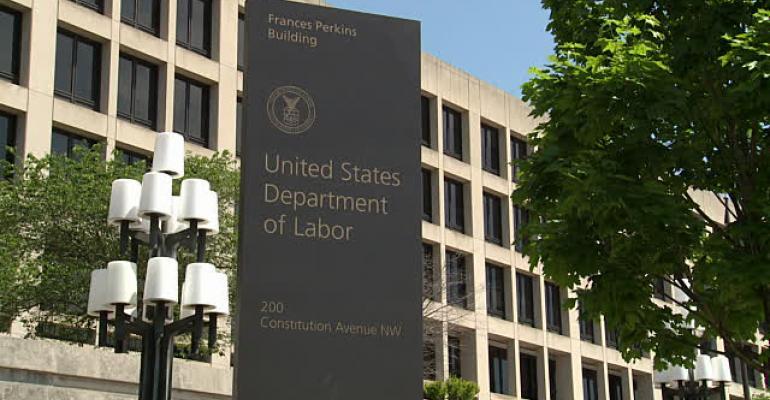Independence Day is just around the corner, and as we celebrate the freedom that our country enjoys, we must bear in mind there are many regulations our industry is beholden to, including the Department of Labor’s adopted new regulations and the Prohibited Transaction Exemption 2020-02 (PTE 2020-02).
There has been a lot of news in recent months surrounding the level of advisors’ and firms’ compliance with Regulation Best Interest, acting as a fiduciary and the Securities and Exchange Commission and other regulators’ increasing surveillance of compliance in this. For any firms who are still hanging onto past confusion around whether the DOL’s new regulations were going to happen and exactly how and when, it’s time to let it go. It’s important to recognize now that this regulation is here to stay and must be abided by.
When it comes to the DOL’s adopted new regulations regarding providing advice and receiving compensation for rollovers on retirement accounts, it is important to note that this was put into place to expand the definition of fiduciary investment advice. Specifically, the PTE 2020-02 is meant to protect advisors when they give advice to investors retiring under the Employee Retirement Income Security Act (ERISA), when it comes to accepting compensation by providing additional disclosures for 401(k) and other rollovers.
As a portion of this is being rolled out on July 1, here are some last-minute tips that advisors and compliance teams should be aware of. From a compliance perspective, teams should be aware their policies and procedures need to be updated to provide these additional disclosures. Advisors will need to be well-versed in these new requirements and prepared to abide by them come the start of July.
Here are five points advisors should pay attention to:
- Acknowledging Fiduciary Status
Advisors must provide a written acknowledgment of their status as fiduciaries under ERISA. The DOL’s model language should be added to your investment management agreement and Part 2A of the Form ADV.
- Providing Written Disclosures About Scope of Relationship and Conflicts
Advisors must provide written disclosures to their clients regarding the scope of their relationship and all material conflicts of interest arising from the services being provided or any recommended investment transaction. These disclosures should already be included in your Form ADV Disclosure Brochure and/or Form CRS.
- Providing Written Disclosures About Rollovers
Advisors who provide rollover recommendations to Plans or IRA owners must document in writing the reasons why the rollover recommendation is in the retirement investor’s best interest. The DOL has provided certain factors that should be considered and documented when making such decisions. When the recommendation of an advisor is to rollover from a 401(k) plan to an IRA, the factors to be considered and documented include:
-
-
- alternatives to a rollover
- a comparison of fees and expenses associated with the plan and the IRA
- whether the employer pays all or any part of the plan’s administrative expenses
- a comparison of the levels of service and investments available for each plan
-
The DOL has provided similar factors to be considered and documented when the recommendation is to rollover from one IRA to another IRA, including:
-
-
- the long-term impact of increased costs
- the appropriateness of the rollover
- the impact of economically significant investment features
-
Best practices point to having the client sign a document, which details the above, to show their understanding of their options and receipt of the disclosures.
- Drafting Policies and Procedures
Advisors must adopt and implement policies and procedures to:
-
-
- ensure compliance with the Impartial Conduct Standards
- mitigate conflicts of interest
- document specific reasons for recommendations made to retirement investors. Compliance is actively working on this component of PTE 2020-02.
-
- Conducting Annual Compliance Review
Compliance teams are required to conduct an annual review regarding their effectiveness of compliance procedures. An additional review designed to detect and prevent violations of PTE 2020-02 is required to be added to the procedures.
Any advisors with questions should consult their compliance department.
Stacy Sizemore is Chief Compliance Officer, tru Independence, an open architecture platform that provides financial advisors with a full suite of business services needed to operate independently.
